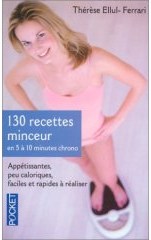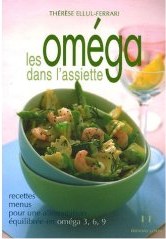A dietitian for about thirty years, Thérèse Ferrari worked for 25 years in a hospital as a clinical dietitian. No longer feeling as if she was doing work she was passionate about, she moved into private practice to have freedom in her words, actions, and schedule. She set up her practice near Cap d’Ail and also offers consultations in Nice at 18 Rue Raiberti.
But her passion doesn’t stop there: Thérèse Ferrari writes books, has developed computer software, and also provides medical training… Today, she shares her dietary advice on the airwaves of France Bleu Azur every Wednesday from 9 AM to 9:30 AM alongside Adrien Mangano. In short, Thérèse Ferrari is a woman who “loves doing many things”.
Nice-Première: Thérèse Ferrari, you are a state-certified dietitian practicing in a dietary advice office and a nutrition training center. What are people looking for when they come to see you?
 Thérèse Ferrari: Most of the time, I think these people come seeking help to function because, in fact, they already know very well what they need to do. For example, in the case of someone wanting to lose weight, everyone knows by now that you shouldn’t eat fats or sugars, but people aren’t necessarily able to implement this. They need help to put these elements in place. It’s a bit like a coaching role. It’s true that the concept is somewhat modern, but it’s the reality, conveying the idea that even if we know how to do things, we struggle to structure and apply them in our lives, and my role is that: to help them progress towards their own goals.
Thérèse Ferrari: Most of the time, I think these people come seeking help to function because, in fact, they already know very well what they need to do. For example, in the case of someone wanting to lose weight, everyone knows by now that you shouldn’t eat fats or sugars, but people aren’t necessarily able to implement this. They need help to put these elements in place. It’s a bit like a coaching role. It’s true that the concept is somewhat modern, but it’s the reality, conveying the idea that even if we know how to do things, we struggle to structure and apply them in our lives, and my role is that: to help them progress towards their own goals.
N-P: Who are they?
T.F.: Because I was a clinical dietitian for a long time, doctors know me and trust me. 90% of my clients are referred by doctors. For example, the girl you just met was referred by a psychiatrist. It’s not coincidence that they end up seeing me. Since I’ve been doing shows with Adrien on France Bleu Azur, a few patients know of me from the show, but that’s a tiny segment of my clientele or friends of friends come to consult me.
N-P: Why do most people come to see you?
 T.F.: It’s a lot of people wanting to lose weight. Many patients have metabolic issues like cholesterol, triglycerides, and there are also anorexic individuals looking for some guidance in nutrition because they are young girls completely lost, afraid of everything, and this ends in disasters. I work a lot with the hospital in Monaco because my office is in Cap d’Ail. People who come to see me also want to be in good shape.
T.F.: It’s a lot of people wanting to lose weight. Many patients have metabolic issues like cholesterol, triglycerides, and there are also anorexic individuals looking for some guidance in nutrition because they are young girls completely lost, afraid of everything, and this ends in disasters. I work a lot with the hospital in Monaco because my office is in Cap d’Ail. People who come to see me also want to be in good shape.
N-P: In good shape?
T.F.: Knowing if they eat well. People who do sports. I earned a university diploma in nutrition at the University of Nice just before going into private practice. I wanted to update myself. And this year, I earned a university diploma in sports nutrition and micronutrition.
N-P: What are your patients asking for?
T.F.: For instance, they want to know if they eat balanced meals. People are increasingly aware that good nutrition can prevent health issues. There is now a segment of the population that wants to know if their diet is adequate. We often hear about a balanced diet, but few actually know what that means. Some patients want to know if their diet aligns with good health. But this is not very frequent yet. What motivates people mostly is the aim of losing or gaining weight. I also work with children with weight problems.
N-P: Do they need to follow a particular program?
T. F.: I follow them. In fact, I adapt to people. Meaning, there are people who, once they’ve seen you, take the instructions and manage to implement them on their own.
N-P: Is one consultation enough?
 T.F.: No, not really, it’s very rare. The consultation suffices in the case of a woman who comes to see me and asks if she eats a balanced diet. I will explain what “nutritional balance” means and question her about her habits. I don’t give out a specific program. For example, if I consult a 45-year-old woman, I might tell her she needs calcium (a yogurt a day or two white cheeses). I offer advice based on a typical meal. Except in special cases, she wouldn’t need to return.
T.F.: No, not really, it’s very rare. The consultation suffices in the case of a woman who comes to see me and asks if she eats a balanced diet. I will explain what “nutritional balance” means and question her about her habits. I don’t give out a specific program. For example, if I consult a 45-year-old woman, I might tell her she needs calcium (a yogurt a day or two white cheeses). I offer advice based on a typical meal. Except in special cases, she wouldn’t need to return.
But most of the time, a goal isn’t achieved in 5 minutes. Imagine someone who needs to lose weight: this morning, I saw a woman who had lost 10 kilos, and it was her third consultation, seeing me once a month. Afterwards, I’ll see her for stabilization, preparing for Christmas, then after the holidays because you usually gain some weight, and I’ll help them lose it generally to avoid going back to old habits. It’s always good to have a little reminder from time to time. As I often say, and I’ve said it on the radio: I have a very nice patient I’ve been seeing for 5 years. The first year he lost 20-25 kilos, and he hasn’t gained them back yet. We’ve incorporated physical activity because he tends to gain weight, and I see him every year.
N-P: Like a coach?
T.F.: A long-term coach… but he knows I am here, and often, the fact that he has an appointment with me makes him be careful beforehand. But, most of the time, when people have achieved what they wanted, they disappear! It’s not recommended to vanish because, little by little, they tend to fall back into bad habits.
N-P: You’ve written numerous recipe books for maintaining a healthy weight or losing weight, what inspired you?
T.F.: My first book was written about twenty years ago. It’s a book I created when I was already doing consultations at the hospital. I would see women wanting to lose weight, and I was very aware that women today are not necessarily able to manage working, taking care of the children, the house… I wanted to give practical advice so these women had examples of simple, quick, and easy recipes they could make every day! If one is on a diet, it’s not once a month, it’s every day! The word “diet” doesn’t really appeal to me because we burn fewer calories, so we should eat less, thus making recipes low in fat. In reality, it’s more about eating adapted to our physical activity rather than being on a diet. Let’s take the example of someone who jogs for two hours every day, they can eat sauerkraut every day. Women who want to lose weight and do not have sufficient physical activity need low-calorie food that must remain tasty and should not take too much time to prepare. I felt there was a lack of a tool to help them. When writing my books, I had the following perspective: I don’t complicate my life, I prepare a dish I enjoy, I spend little time making it, I will enjoy it, it tastes good, and it will help me lose weight! For me, recipes were the practical help. When I see people in consultation, I provide them with practical guidelines and recipes.
N-P: And what if one wishes to gain weight?
T.F.: They just need to eat, eat more. You can gain weight. It’s known that it takes longer than losing weight, but it is possible. You lose weight faster than you gain!
N-P: This year, you released a book on “Omegas on the Plate”, can you tell us more?
 T.F.: Omegas are fatty acids that have always existed. However, studies have shown their importance in preventing cardiovascular diseases. So why go for dietary supplements which are popping up in stores? Omegas are found in a perfectly ordinary diet. In my book, I feature recipes of fatty fish and a list of foods rich in Omega 3: fruits, vegetables. You should consume fatty fish twice or three times a week for a sufficient amount of Omega 3. Our diet is low in Omega 3, hence the importance of enrichment because all the Omegas we consume are very rich in Omega 6. Before, this wasn’t the case. For example, beef used to be grass-fed, Omega 6 was less prevalent. Nowadays, they are fed differently, and the meat contains a lot more Omega 6. The ideal is the balance between Omega 6 and Omega 3. However, in our diet, we have a maximum amount of Omega 6 for a minimum amount of Omega 3. Industrial food has brought a fraction of fat called Omega 6 in much greater quantities than before.
T.F.: Omegas are fatty acids that have always existed. However, studies have shown their importance in preventing cardiovascular diseases. So why go for dietary supplements which are popping up in stores? Omegas are found in a perfectly ordinary diet. In my book, I feature recipes of fatty fish and a list of foods rich in Omega 3: fruits, vegetables. You should consume fatty fish twice or three times a week for a sufficient amount of Omega 3. Our diet is low in Omega 3, hence the importance of enrichment because all the Omegas we consume are very rich in Omega 6. Before, this wasn’t the case. For example, beef used to be grass-fed, Omega 6 was less prevalent. Nowadays, they are fed differently, and the meat contains a lot more Omega 6. The ideal is the balance between Omega 6 and Omega 3. However, in our diet, we have a maximum amount of Omega 6 for a minimum amount of Omega 3. Industrial food has brought a fraction of fat called Omega 6 in much greater quantities than before.
N-P: And finally, at the onset of winter, what advice would you give to our online readers?
T.F.: I always advise not to postpone good resolutions to January. As an example, yesterday I had a woman on the phone who said: “I haven’t lost weight, maybe it would be better to meet in January.” That’s not good because if you start with the principle of “we’ll see in January,” anything can happen by then. I want to tell readers that if they have a goal of losing weight, they shouldn’t abandon it by saying they’ll start in January, as it’s the best way to put on many kilos! We can have very nice Christmas celebrations: lobster, prawn, scallops… Of course, there’s the yule log and champagne. However, what often bothers me is that the holiday season is seen as a two-week free-for-all. We end up not eating as much as before. So the advice I give them: eat properly without overdoing it, continue your diet until the holidays, take a small break during, and resume afterwards. Even if one gains one or two kilos during the holidays, they can be easily lost, more is more difficult. Besides that, enjoy seasonal fruits, it’s very important: oranges, lemons, grapefruits… It’s important for infection-fighting and general health.
FERRARI Dietary Advice Office
18 Rue Raiberti 06000-NICE
1 Rue passe du stade “L’Atalante” Block A 06320-Port De Cap d’Ail
By appointment
Phone: 06 84 11 16 83
Fax: 04 93 75 12 42
Where to find her books?


